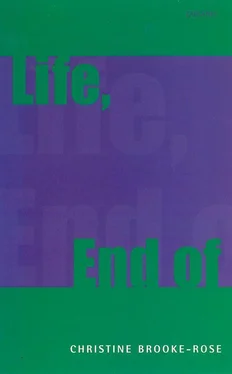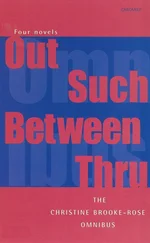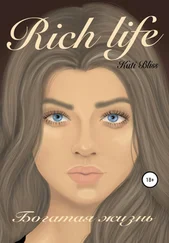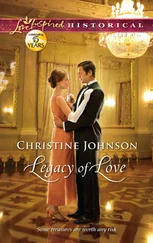Christine Brooke-Rose - Life, End of
Здесь есть возможность читать онлайн «Christine Brooke-Rose - Life, End of» весь текст электронной книги совершенно бесплатно (целиком полную версию без сокращений). В некоторых случаях можно слушать аудио, скачать через торрент в формате fb2 и присутствует краткое содержание. Год выпуска: 2012, ISBN: 2012, Издательство: Carcanet Press Ltd., Жанр: Современная проза, на английском языке. Описание произведения, (предисловие) а так же отзывы посетителей доступны на портале библиотеки ЛибКат.
- Название:Life, End of
- Автор:
- Издательство:Carcanet Press Ltd.
- Жанр:
- Год:2012
- ISBN:9781847775726
- Рейтинг книги:5 / 5. Голосов: 1
-
Избранное:Добавить в избранное
- Отзывы:
-
Ваша оценка:
- 100
- 1
- 2
- 3
- 4
- 5
Life, End of: краткое содержание, описание и аннотация
Предлагаем к чтению аннотацию, описание, краткое содержание или предисловие (зависит от того, что написал сам автор книги «Life, End of»). Если вы не нашли необходимую информацию о книге — напишите в комментариях, мы постараемся отыскать её.
by a master of experimental novels finds the author reflecting on her old age and its effects on her writing. As she reflects on her own career, her experiments with narrative, and on the narrative she writes here, she ultimately reasserts herself and accepts the life behind her.
Life, End of — читать онлайн бесплатно полную книгу (весь текст) целиком
Ниже представлен текст книги, разбитый по страницам. Система сохранения места последней прочитанной страницы, позволяет с удобством читать онлайн бесплатно книгу «Life, End of», без необходимости каждый раз заново искать на чём Вы остановились. Поставьте закладку, и сможете в любой момент перейти на страницу, на которой закончили чтение.
Интервал:
Закладка:
The dry-stones climb horizontally over one another. Many have a shaded hollow near the top, or two, like eyes, so that heads appear, the head of a sheep stretched out while being shorn, Tess as milkmaid in a coif looking down at her hands on cowtits, except that neither the shearer nor the cow is there, but other heads, a pussy-cat or is it a tiger, no, a Cheshire cat since it keeps vanishing. The lying-back profile of a woman in ecstasy her open mouth at once becoming the mouth of a fish. Or even bodies, a tiny dinosaur crouching, its huge hindlegs in the air like a man praying lips to ground, its head trapped in a cave opening, but resting on small useless forearms, those of a baby tyrannosaur in fact, giving an impression of being the ancestor, through eons and complex cladistics, to the kangaroo. Then, in another misleading way down other clades, humans. Above its mountain haunches, a baby elephant.
Along the top of these crushed creatures, separated by a ridge of flatter stones for support, runs a tall line of vertical stones clinging together side by side, forerunners of defensive spikes and just as useless. One sticks out higher than others, horizontally sliced above a narrow downward ridge like a long nose, itself flanked by two hollows inclined outwards from nose to cheekbone, and below by a flowing beard. The hollows are darker at the top, eyes looking up blankly towards the brow cut off by sky like a pale Erasmus hat made of eternity, or a baseball cap worn back to front. Or maybe a helmet, or the sky as invisible crown of thorns. Did Christ ever wear a hat?
Just under the beard stretches another fish, broad and balancing on a triangle like a baby seal. The fish is Christ’s collar or bib, or a wide hat upon a nose, or maybe huge Neanderthal eyebrows over a diminishing face.
To the left of Christ is a duchess in a wonderland headdress, and to the right Beethoven, broadfaced and aureoled in hair, scowling down furiously deaf at the score of Leonora being turned into Fidelio. But a slant of sun under the nose changes incredibly into a blimpish moustache, transforming Beethoven into one of the zwei Grenadiere stumbling back nach Frankreich after being in Russland gefangen. Words by Heine, set by Schumann, learnt as a child. Or maybe Flambeau uttering Et nous les petits les obscurs les sans-grade?
For only Christ looks up, helplessly. Most of the strong faces stuck side by side along the top of the wall look down kind or cruel upon the heads they crush, also looking down not up or through, the topliners like gods or saints or other fictional characters. In fact Beethoven is not changed into a Napoleonic Grenadier, he reappears next to him, perhaps to play the Eroica or the Emperor Concerto. Still, they all suffer from semiosis.
But the world. The contact seems less sure, the knuckle replacing the fingernail for the orthostatic position during the measuring of blood pressure. And soon no doubt the palm of the hand. The systole falls, the diastole rises and vice versa. All this for the doctor, who glances at the month’s figures and says nothing as usual. Yet the standing position is particularly hard, since the instrument always first shows E for Error or even EE, which means blowing up all over again, only to reach E once more, like a reproach, still standing with exploding veins, then figures at last, which no one apparently needs to know, for clearly sudden death is easier than waiting nail or knuckle to wall for three minutes or more. Unless death is the same, first marking Error twice.
Rising takes two hours. First staggering to the kitchen to make the tea needed by the deficient kidney before relative humanity returns, then carrying the small tray hand to chest, the other hand for contacts, back to the bed pillows for kidney’s sake and because all the medicines are there, hidden from living-room view. Then, after the useless taking of the blood pressure, the exercises for the burning legs below, some with a two-kilo weight attached to each ankle, good for the withering muscles, quiet thunder for the weakening arteries. Slow washing, drying in the bathroom, and dressing on the bed. Then the small tray lurches back.
And at last, the armchair, the world. Despite the time taken by the physical detail each day, it is not true that the disabled necessarily withdraw into an addled brain. The detail becomes too tedious to interest even self-interest and the world takes over. Not as O.P. if it can be helped, but can it? The point of O.P. being precisely that it can’t be helped.
Someone has said the advantage of old age is that all pretence at enjoying society can be dropped. That’s a bit unsubtle. For one thing it’s more mutual. It’s not only expected by society but acted on as if true. Tradesmen, artisans, technicians have to be begged as never earlier by their one-time good customer now a mere woman handicapped and old. Letters dwindle, even e-mails drop, or some of those that don’t are either pseudo-letter-writing or over-demanding, wanting information, or a reading of their typescripts as if still part of a paid job, as if tons of time were available now retired, instead of less and less for slowness and pain.
Now that the office is brought down, this matters less, the True Friends still afford more than nail or knuckle contact, and only the books remain up there, inaccessible except on all fours up the stairs, and only if their place is exactly known. But plenty enough are down here. For of course, since the world can’t be visited any more in what is called reality there is no withdrawal but a lapping up of familiar illusion to forget the real. Or maybe to compare it, distantly, with memory. Is that what death is like?
But memory ceases to matter. Even in rereading classics. At last, for pure pleasure. Without the obligation to remember reorganise adapt apply analyse for an exam, a review, a class, a seminar, a conference paper, a book. Droppable at any moment, in the leg-up armchair, against cushions, the only position not tearing at the chest. Or in bed early. When the fire in the feet becomes embers.
And characters in fiction can never be O.P., even the villains, because the briefest definition of O.P. is disability of the imagination. And characters do a lot of imagining, often wrong, but of each other. Not of the reader. He’s out of their ken. They may be lost in a world of good manners, but good manners have nothing to do with how you hold your fork or whether you say mirror or looking-glass, or other such arbitrary rules that change in place and time. Good manners are timeless, spaceless, classless: simply the ability to imagine the other. As an intelligence officer learns to do, if efficiently backed and not corrupted, experiencing a whole war from the enemy viewpoint. And as a novelist does, all the time, creating characters. And actors.
The world, on the other hand, is not even supposed to imagine, merely to be.
Anyone at any age can fall passionately in love with it, expecting no return. Its hold is gripping, whatever the path chosen, yet impersonal, undemanding, or demanding only what can be given, at rest, without the piercing efforts.
For the first time since earlier enthusiasms followed by exams and all the rest, the mind now turns to the world, easing out of word-play and its neighbouring disciplines, philology, linguistics, philosophy, psycho-analysis. These are the ivory towers, more singularly cut off from the world than the wooden or stone towers of history politics economics sociology, however cut off these still may be. But words we take for granted do get analysed. One book traces the complex history of democracy, that thing we ask people to die for, so that we needn’t, and which we’re trying to ram down the rest of the world’s throat, how long it took, how recent, how false, flawed and incomplete it is. Another does the same with the word republic. I’m a republican, says a girl ambulance-driver, clearly in the context meaning democrat, or even just that she’s as good as any other. As if monarchies couldn’t be democratic and republics dictatorial. Yet such studies are a good sign, some people are waking up. Traditionally philosophy and its kindred disciplines merely assert, science has to prove. And re-question. The strong but rustable metal towers of science are now unsharable, except in popularised versions of astronomy physics biology paleontology and such, the most inaccessible and yet the least cut off from the world, the planet, the universe. The globe. Except when some rush ahead with something new without first finding out if it can be stopped, like the Sorcerer’s Apprentice.
Читать дальшеИнтервал:
Закладка:
Похожие книги на «Life, End of»
Представляем Вашему вниманию похожие книги на «Life, End of» списком для выбора. Мы отобрали схожую по названию и смыслу литературу в надежде предоставить читателям больше вариантов отыскать новые, интересные, ещё непрочитанные произведения.
Обсуждение, отзывы о книге «Life, End of» и просто собственные мнения читателей. Оставьте ваши комментарии, напишите, что Вы думаете о произведении, его смысле или главных героях. Укажите что конкретно понравилось, а что нет, и почему Вы так считаете.












